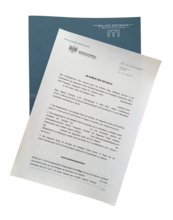A restaurant published a photograph of a winery on its website. The photographer argued that no licence had been acquired for this use of the work and that copyright had therefore been infringed. He assigned his rights to the Legal Protection Association of Photographers, which asserted the claims for omission and royalties under the Copyright Act by means of a lawsuit.
The restaurant in question is located in a very representative building of a public corporation, but is not operated by the corporation, but by a private limited company which rents the premises from the corporation. The Legal Protection Association of Photographers brought an action against the public corporation before the Vienna Commercial Court, as the restaurant on whose website the alleged copyright infringement was committed is located in the public corporation's building.
The corporate body represented by lawyer Balazs Esztegar argued that it had
- neither operated the restaurant
- nor does it manage the restaurant's website and
- is not even the owner of the domain.
Thus, the defendant was not a defendant with regard to the asserted copyright claims, as it only rented out the premises for the restaurant.
The plaintiff maintained its claims and argued with the so-called entrepreneur liability in copyright law:
§ 81. (1) Any person whose right to exclude based on this Act has been infringed or who has reason to fear such infringement may sue for omission. The owner of an enterprise may also be sued for such injunction if such infringement has been committed or is threatened by a servant or agent in the operation of his enterprise; section 81 (1a) shall apply mutatis mutandis.
In the plaintiff's opinion, according to the case law, the term "entrepreneur" is to be understood broadly, so that the defendant corporation as landlord also falls under it.
If one were to follow this line of argument, however, this would have considerable consequences for any rental: the landlord would be required to carry out ongoing monitoring activities in order to prevent any copyright infringements by the tenant, as he would otherwise be liable for them himself.
In fact, the Commercial Court of Vienna also considered this connection to be too far-reaching and dismissed the action in its entirety. On the basis of the concluded tenancy agreement, the tenant is entitled to use the premises. However, the tenancy agreement does not give the defendant corporation as landlord any legal possibility to prevent possible violations of third party rights by the tenant, for example in the form that it could have had the homepage presented to it for review or approval before publication, nor that it had any possibility to influence its content. In the opinion of the Commercial Court of Vienna, the defendant corporation is therefore not liable under Sec 81 (1) sentence 2 UrhG (entrepreneur liability).





